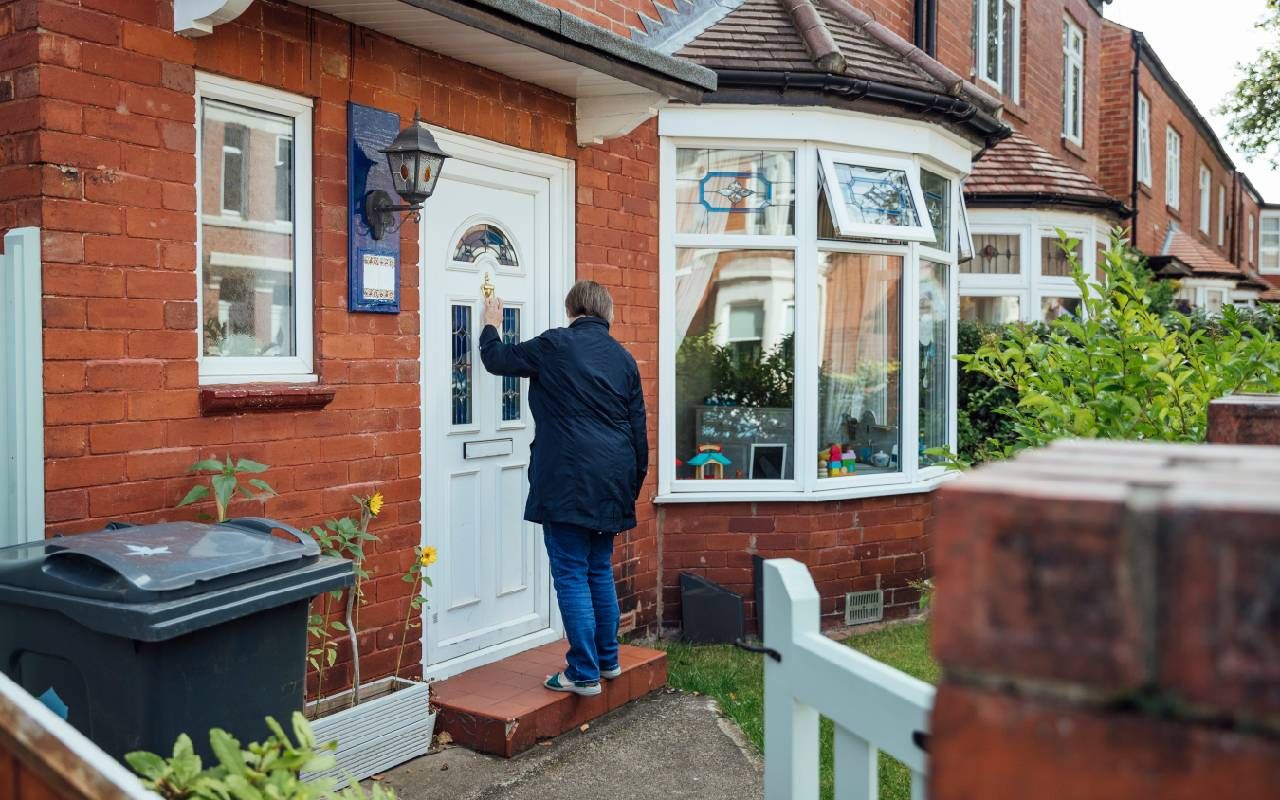When a Close Friend Moves Away
The friendship may endure, but it's rarely the same
She's moving to Brooklyn. That's only 25 miles away from my home in New Jersey. But what with the bus and subway rides that will now be required for us to settle in one or the other's living room over tea (she favors caffeinated, I need herbal) and scones (she likes raisin, I like chocolate chip), it feels like she's moving a million miles away.

Loss packs all kinds of wallops. Certainly, compared with big ticket items like loss of mobility, loss of faculties, loss of acuity, loss of life, this is a small one. Yet the fact that she's moving feels huge.
Those kinds of life-upending moments, thankfully few and far between, have proved that ours is a friendship that both of us can count on.
Over the decades of our friendship, close proximity has been key. When I needed to rush my first husband to the hospital in the middle of the night, she was the person I called to come stay with my young daughter. Never mind that it was around 2 a.m. when I woke her. She was at my door within minutes.
After my husband died, she was the friend who dropped in daily to check up on me and took me, in the blur of new widowhood, to and from my scheduled colonoscopy.
When she learned that her father's health was failing fast, I was able to get to the local hospital in time to be by her side when he passed.
A Friendship to Count On
When she learned that her marriage had taken an unsettling turn, I was able to rush over to her place with a bottle of wine, a bar of her favorite chocolate and words of commiseration. Two years later, I drove her to court to finalize her divorce.
Those kinds of life-upending moments, thankfully few and far between, have proved that ours is a friendship that both of us can count on. If she needs me, or vice versa, I am certain both of us are willing to make the commute that hypothetically should take 47 minutes (a MapQuest fantasy), but is likely to take more than two hours, given the unreliability of bus schedules, the unpredictability of road traffic and the virtual non-existence of quick subway connections.
That trek, however, is now a formidable barrier to the breezier, less consequential get-togethers that have enabled us to know the ins and outs of each other's daily lives. We'll no longer be able to loan each other books. Snag each other for a quick lunch. Take our walk-and-talks around local parks, our wandering conversations filled with the sorts of minutiae and details that make us an active presence in and witness to each other's lives.
We'll no longer be able to loan each other books. Snag each other for a quick lunch.
Through the decades, I've managed to maintain precious relationships over great distances. After my undergraduate years, I continued college friendships by letter. (Remember those?) While long-distance phone calls were beyond our meager budgets, a stamp was affordable (or, at least it was back then).
In time, email and texting helped ease distances. But they also helped shrink the content of the communications. It's so much easier to toss off a quick, mispunctuated text then to have a meaningful conversation. And it's not like you schedule probing conversations. They arise out of circumstance. Proximity. Being together, sharing the small stuff that may lead to the bigger stuff that may require a second cup of tea and a box of Kleenex.
As we age, it's inevitable that friends we've made in our immediate proximity will move away. After our kids move out, the house that once felt too small begins to echo with emptiness. Soon, more and more of those in our cohort are off to smaller units in more hospitable climates. Down the road, perhaps there's another move, this one to an assisted living community or a location closer to our kids. As addresses change, friendships get lost.
As we age, it's inevitable that friends we've made in our immediate proximity will move away.
I've long felt that friends fall into two categories. There are those friendships I think of as "situational." Those are the people we befriend in our work place, our yoga class, our town. When the situation alters — we change our place of employment, we move to a different yoga studio, we relocate to a different town — the binding element evaporates.
Yes, of course, we pledge to stay in touch. Initially, we may even make an effort to see each other. But quickly we learn that absent what we had in common — our mutual obsession with office politics; our weekly dissections of the yoga class; the ongoing debate about leaf blowers —conversation requires more of an effort. In time, even the strongest of such relationships tend to drift away.
My 'Real' Friends
The relationships that transcend situation are the people I think of as my "real" friends. They are rarer, more special, impossible to replace. No matter where we might go and what life may deal us, these relationships remain intact. These are the ones where we both know texting won't do. Where we both know that we need to schedule a phone call or a visit. These are the ones where our conversation picks up right where we left off the last time, the level of intimacy and interest undiminished.
Even so, absent close proximity, it's rarely the same. At a remove, I never know what to make of the extraneous noise filtering through the phone line. Is my friend dodging traffic while we talk? Making dinner? Mouthing words to the person I hear in the background? Am I catching my friend at an inconvenient time? Is he or she really in this conversation or in a hurry to get off? Is this phone call little more than a multitasking chore to be checked off a busy to-do list?
When I'm in a shared space with a friend — across a dinner table, in their home, walking beside them — I can read if our conversation has their full attention.
When I'm in a shared space with a friend — across a dinner table, in their home, walking beside them— I can read if our conversation has their full attention. I can see their confusion about or interest in something I've said. Gather from their facial expressions, if not their words, when they're upset about something. Sense whether the signal is to leave the matter alone or gently probe. Whatever it is, I know that, by choice, we're in the moment together, building on our long history of caring, concern and trust.
On a visit to my friend's soon-to-be ex-home, I encounter accumulating boxes of items she plans to donate, give away or throw away. I am confident that our friendship is one of the real ones that will endure, not a situational one that will eventually land in the discard pile. Still, seeing evidence of her decampment makes me ache.
When she first began talking about moving five years ago, I offered support but also allowed myself to say that I hoped she wasn't leaving anytime soon. That I was going to miss her.
Now, with her relocation just a month away, I tell her only that it's wonderful that she's found a Brooklyn apartment that meets her needs. That it's wonderful that she'll now live closer to her daughter and grandchild. That, yes, of course I'll meet her in Manhattan for shows.
I also tell her, We're going to have to develop a phone habit.
I know, she replies.
Though we smile reassurance at each other, she knows as well as I do that it won't be the same.


